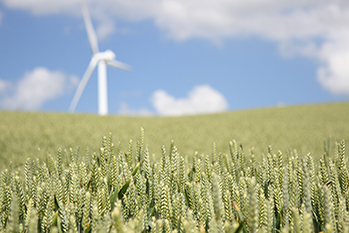Flourishing Climate Smart Agriculture in pandemic times
The rapidly evolving pandemic situation continues to have a dramatic impact on lifestyles, economic activity, monetary and fiscal policy, and financial markets. Indeed, the coronavirus outbreak is set to deliver a sharp and deep economic shock, with U.S. and global recessions on the menu.
By its “defensive” nature, the global food and agricultural investment space looks certainly resilient in light of the virus outbreak. Yet, as the COVID-19 continues to spread, governments around the world are closing factories, stores, schools, restaurants, hotels, and pretty much everything. The ripple effects will certainly affect the food and agricultural sector in different ways.
However, the spread of the virus will peak, and economies will recover.
Looking forward, there is now a growing recognition across society that climate change is the number one problem mankind has to tackle. This involves issues such as increasing land and ocean heat, accelerating sea level rise and melting ice – and the knock-on effects on socio-economic development, human health, migration and displacement, food security, and land and marine ecosystems.
A possible path to recovery suggests that the food and agricultural sector will gain even further relevance in light of the many challenges associated to climate change, food security, more nutritious diets and the pressure on natural resources.
FarmCompany, as the leading Danish farmland investment company, embraces a climate-smart agriculture vision, which is integrated into its diversified portfolio of farms that include crop, dairy, beef and pork production and which currently consist of nearly 1,800 hectares in Denmark.
Climate Smart Agriculture (“CSA”) can be seen as an integrated approach to managing landscapes to help adapt agricultural practices, livestock and crops to climate change, and which can boost productivity, enhance resilience and reduce greenhouse gas emissions.
FarmCompany’s vision of a climate-smart farming operation is thus centred around building a sustainable and productive agriculture production system, which is better placed to reduce the carbon footprint of its farming activities on the environment.
The five pillars of FarmCompany’s CSA approach are i) crop management, ii) livestock management, iii) soil and water management, iv) biodiversity protection, and v) green transition – with a focus on farm waste conversion to biogas, as well as wind energy.
As part of its commitment to transition to CSA, FarmCompany is taking further steps to engage with the Nordic AgriFood tech innovation sector. The region’s innovation ecosystem is one of the world’s most well developed, with a healthy flow of capital and a thriving network of entrepreneurs, investors, research centers and universities.
FarmCompany’s goal is to test novel technologies that have the potential to contribute to the goal of becoming a climate-smart farmland company, including precision agriculture technologies and other solutions to reduce its carbon footprint.



